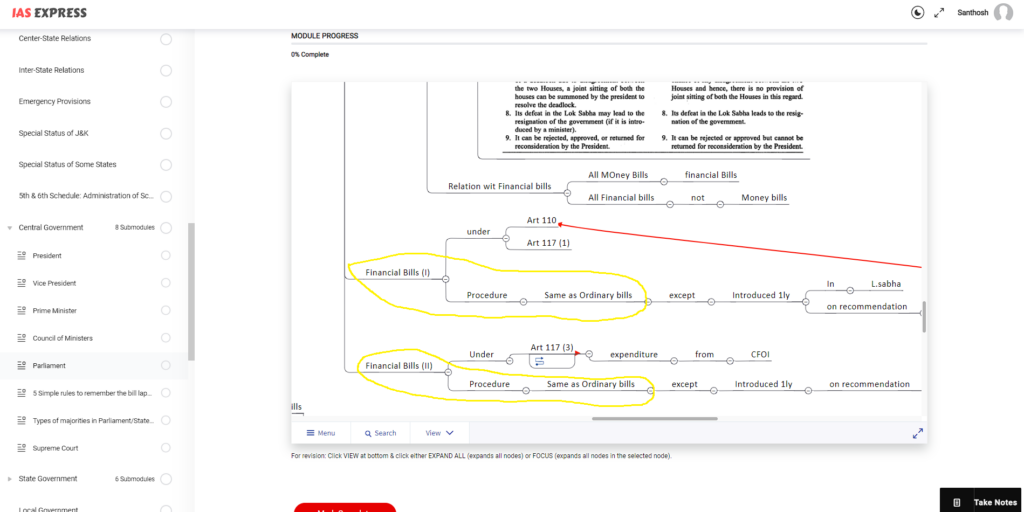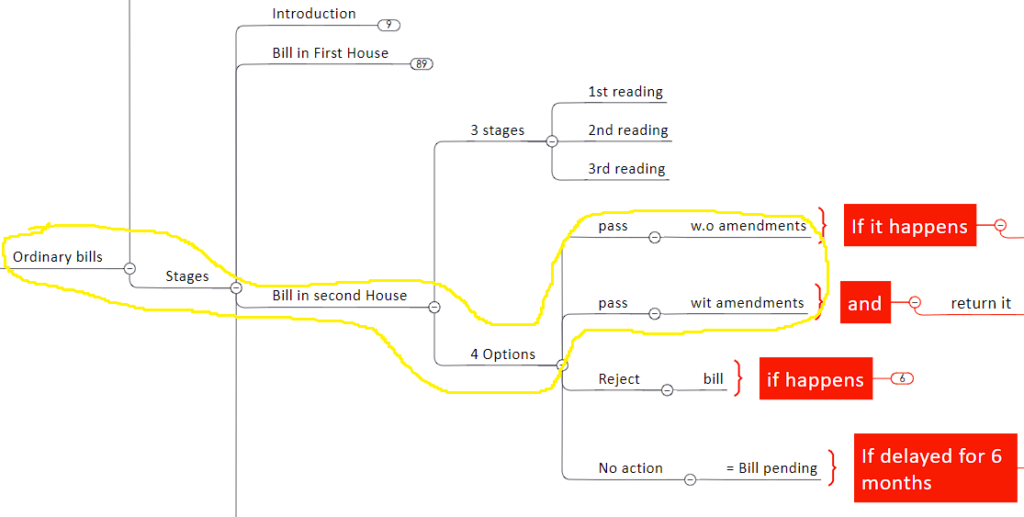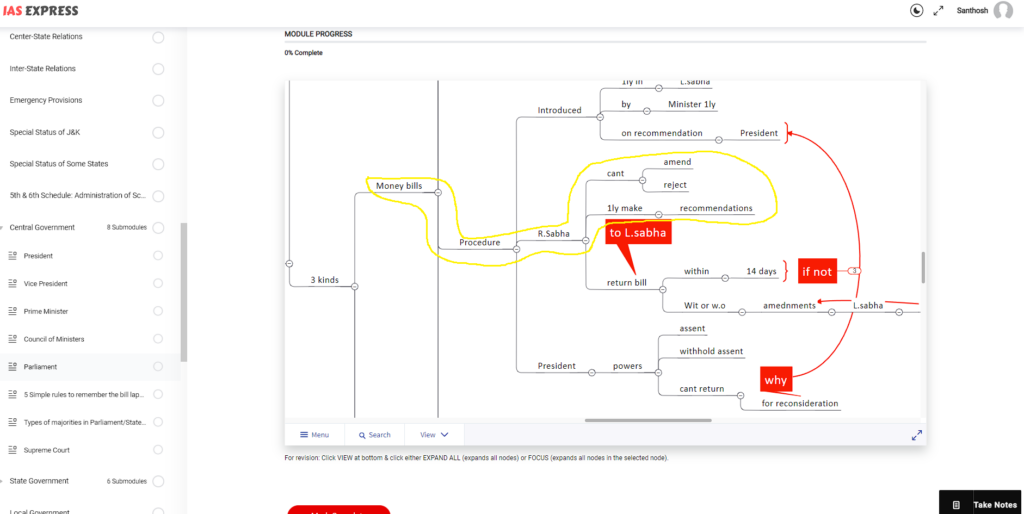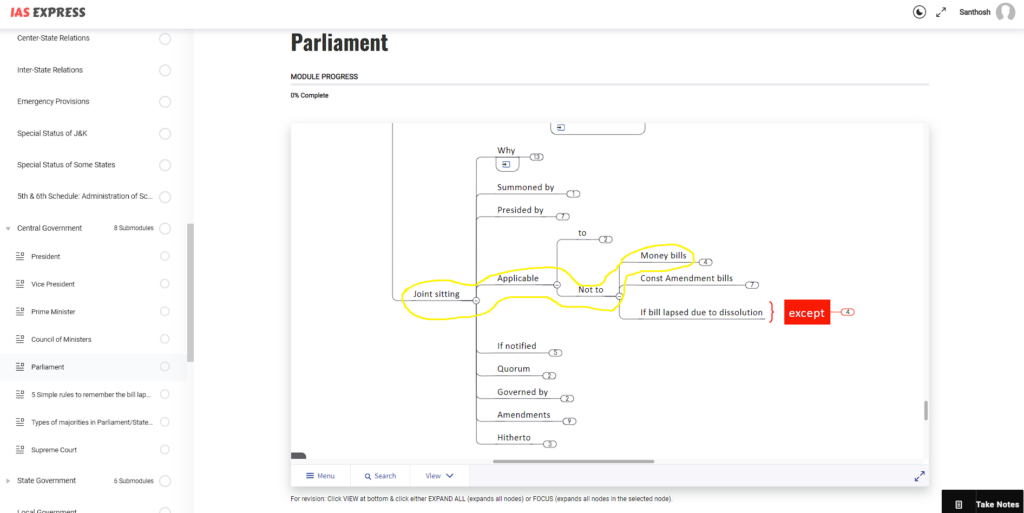With reference to Finance Bill and Money Bill in the Indian Parliament, consider the following statements:
1. When the Lok Sabha transmits Finance Bill to the Rajya Sabha, it can amend or reject the Bill.
2. When the Lok Sabha transmits Money Bill to the Rajya Sabha, it cannot amend or reject the Bill, it can only make recommendations.
3. In the case of disagreement between the Lok Sabha and the Rajya Sabha, there is no joint sitting for Money Bill, but a joint sitting becomes necessary for Finance Bill.
How many of the above statements are correct?
(a) Only one
(b) Only two
(c) All three
(d) None
Explanation:
Statement 1: Lok Sabha’s Authority over the Finance Bill
- This statement is correct.
- When the Lok Sabha transmits the Finance Bill to the Rajya Sabha, it has the authority to amend or reject the Bill.
- If the Rajya Sabha does not return the Bill within 14 days, it is considered passed by both Houses.
Statement 2: Lok Sabha’s Authority over Money Bill
- This statement is correct.
- When the Lok Sabha transmits a Money Bill to the Rajya Sabha, the Rajya Sabha cannot amend or reject the Bill. It can only make recommendations.
- The Rajya Sabha must return the Bill to the Lok Sabha within 14 days, and if it fails to do so, the Bill is deemed to have been passed by both Houses.
Statement 3: Joint Sitting for Finance Bill and Money Bill Disagreement
- This statement is correct.
- In the case of a disagreement between the Lok Sabha and the Rajya Sabha, a joint sitting becomes necessary only for the Finance Bill, not for a Money Bill.





